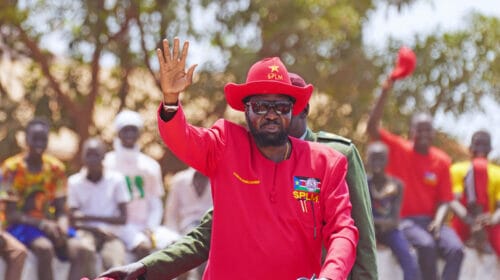Women Political and Social Rise/The Imaginary Glass Ceiling in Mauritius
Recently in January, the Mauritian government under a new gender allocation law introduced that one-third of candidates in local elections must be women. Nevertheless, as we head further more into 2012, globally, women, still considered as a minority group in Mauritius, Africa and worldwide, in varying proportions by (NGO)-non-governmental organizations and the United Nations, amongst the rising levels of stigmatization that is apparent from the Mauritian government and society as a whole.
Within the Mauritian social fabric, women are still fighting for a fair political voice, as with poorer sections of the community who in Mauritius, women make up over 52 percent of the population, certainly a majority, across Africa, and globally. However, redefining what a minority is and what a majority is, well has been quite contradictory.
Many nations around the world have a wealth abound to 8-10 percent of the population, in other words the rest of the 90 or so percent are controlled by the few. So if women are a minority, what does this all mean?
International Women’s Day was celebrated around the world on March 8th 2012, Mauritius was no exception, with many activities organized around the island in various NGO’S (Non –Governmental Organizations) engaged in women’s rights and issues.
But as Mauritius transited this day of celebration and around the world, certainly the island republic has some alarming facets about its issues involving women in society in poorer conditions of living and for gender equality of which many reports have suggested that more effort by the government to recognize women’s issues more comprehensively as well.
The government of Mauritius faced with staunch pressure from NGO’S within the country to stem gender inequality of women and of their right sand for women in poor living conditions and to develop a substantial political voice. Additionally the UNCEA highlighted in a report, that Mauritius would reach “gender parity” in the educational system for girls and for them to attain proper education.
The situation of women has prompted many warnings for politicians to act more diligently on the plight of these vulnerable women, and to be “properly sensitized” about women’s concerns in general.
In 2009 in a statistical report, the Ministry of Gender Equality, Child Development and Family Welfare in Mauritius highlighted that, harassment and sexual assault as areas of concern within the country and with findings from the Mauritian governments Family Support Bureau, there were 14,100 cases reported by women, compared to only 5190 by men. Many of these cases involved gender-based violence, sexual harassment and discrimination. Furthermore, the Ministry in their summary findings, publically stated that “These areas highly contribute to the marginalisation of women and girls, which eventually prevent them to participate fully in the process of development.” Moreover, the report highlighted that 50% of the employed females were drawing a monthly income not exceeding Rs.6, 000 rupees 208(USD).
In a report in 2010 entitled, the Worlds Women by the United Nations, found that cultural customs and the economic conditions in many countries put women in a position to accept abuse, and in terms of decision making in government, there are only 10 per cent of women represented in the national assembly in Mauritius.
This situation is however not exclusive to Mauritius, the report indicated that it is certainly worldwide and predominant in Africa, although the UN recognizes that in many parts of the world it is an epidemic, not solely limited to economically developing countries.
The report, published annually, indicated that the African region is vulnerable to women’s gender inequality, but does not rule it has solely and African problem. The report outlined that it is a global problem and is rising year by year.
In the context of social disparity of women in Mauritius and that of poorer communities of which women are living and playing out their lives, overall problems facing women, is drug and alcoholism and one of human development and not one of solely money or substance abuse.
A disparate measure considering that Mauritius is in a constant upheaval between the paradoxes of materialism, versus social responsibility. Stereotypical of what a “transient” socio-economic Mauritius of today is, and much of developing Africa.
Largely seen as a “growing epidemic” in Mauritius, women from less affluent or poverty stricken areas of Mauritian society are plunged into drugs, alcoholism, prostitution and stigmatization, the social malaise of poor women in the country because of poor education, sexual assault and in Mauritius, large forms of “overt” stigmatization.
A situation that many women’s groups in the country have continued to point out in the country. Furthermore, amongst other issues like domestic violence, sexual assault and workplace harassment, adversely affect their children as well according to the United Nations Women’s Watch organization.
These issues largely seen as symptoms of women’s problems, and not the inherent cause of it, contrary to popular belief. In the quest for women’s social change in Mauritius, the non–governmental organization (NGO) Chrysalide, seen to be at the forefront of education, awareness and social responsibility and gender issues for women affected by drugs and alcoholism and for women’s rights and social advocacy on the island of Mauritius.
Amidst various social concerns, problems relating to substance abuse and prostitution of women the centre caters for victims of these social and lifestyle “indifferences” with the rest of society and that of the maledictions that these people face in their lives as women.
Situated on the west coast of Mauritius, in Bambous, (NGO) Chrysalide works for a better future and better prospects for women with drug, alcoholism and domestic violence. Largely and fore mostly a rehabilitation centre for women and their children who, have in most part suffered from substance abuse whether it is drugs or alcohol. The centre, which calls the victims of substance abuse “residents” have in some cases been engaged in prostitution and have been the target of domestic violence.
Some residents at the same time are HIV positive, a symptom that is all too common and repeated worldwide with women engaged in the sex working trade, specifically with drugs are combined. The Head of Chrysalide is Marlene Ladine, who says that most of her life she has dedicated her energies to women’s rights and not necessarily on the negative aspects of women in Mauritian society. “Traditionally drugs and alcoholism was a men’s issue, but that has all changed now in Mauritius there is a growing problem of drug addiction amongst women in due part related to societal pressures, they are women of course but that is the symptoms of the problem not the cause, they don’t want to be in that situation.” Marlene says. “For women especially in the poorer sections of society in Mauritius it is a problem, it is also combination of problems that contribute to women’s social issues”. Marlene says.
“Education is important and that of the cycle of education, awareness has to be created first, these drug and alcohol problems just make the situation worse as they compound the existing issues for women in society.” Marlene said.
She points out that human development of women is first, human development is essential for the women. She adds, “Society’s competitions make these even worse for women in general”.
Marlene says that issues surrounding women in accordance to substance abuse solely do not lay in just drug addiction and the infliction it creates; there is a state of mind behind the causes of it.
Marlene openly suggests that the root causes that underlie and for that matter, undermine women’s social progression in today’s society is not enough women’s empowerment, education and political voice.
She iterates that certainly in the poorer regions of the country, this hinders the progress of women, but it is not limited to women drenched in poverty, well- off sections of Mauritian society are prone to substance abuse as well.
This inevitably may led to the unfortunate fact that as these female children grow up and become older and become women, there is a lack of awareness within them individually in what they are doing in life, with no direction or “life map” and with the absence of education in a social sense are then thrown into the direction of substance abuse.
Marlene goes on further to state “confidence and the real human experience together with the empowerment of women are very important to tackle the issues of drugs and alcoholism in Mauritius and restate the value of women not just in Mauritius, but all over the world.
Certainly, there may be a link between poverty and drugs but as Marlene points out in a conversation about the links of poverty and substance abuse in Mauritius, she says “there is no difference between rich and poor, apart from the financial issues.”
Marlene explains she believes that the main issues are in the psychological and that of the human development of the women. Money is not the fundamental cause or the “root of evil” here, but money or financial issues magnify the existing problem in women, put this together with drugs and alcohol and to some extent prostitution, give you an “unfavorable” result.
“There is a poverty problem, but there is no human development for these women, it’s in this that problems do occur, for the reason that the lack or absence of human development is contributing to women’s poverty and/or social degradation of women in general, and most certainly personality degradation,” Marlene said.
“We have ways to bring back there sense of self, and that of being a woman.” Marlene says
Noelette,a social worker affected by drugs in the past, and who is now fully rehabilitated said “drugs have created the problem in Mauritius, drug has use is risen and that the government of Mauritius should do more about it, but it’s not just women that do drugs and drink alcohol.”
Noelette, who asked for her last name to remain anonymous, pointed out that for women in Mauritius it is hard in general, not just because of drug abuse but more to do with them being women and the government is highly bureaucratic, making change slow for women.
According to United Nations reports and Harm Reduction International, women use substances for reasons different than men and that women are more vulnerable to abuse and addiction apart from the gender stereotypes held by society that are placed upon the social issue. These findings are true of Mauritius as well.
Women face unique stigmatization in Mauritius for their drug use and often experience discrimination in their ability to either obtain or look for treatment. Until recently, this unfair view in Mauritian society, drug treatment, largely designed upon men’s needs, emphasizing gender inequalities and issues in Mauritius further, in which it is acceptable for a man to have substance abuse problems, but not women.
Noellette says, “Women’s relationship to alcohol and therefore the way in which they could get help was inadequate, support through consultation and care needs to be offered to them.”
Marlene reflects on the situation of women in Mauritius as being positive for the future, but many perceptions about women have to be changed and that it will not be easy, many things are to be considered.
“The problem all too often is affected by their experiences with domestic violence, prostitution and their responsibilities for family and children, their economic and employment status and financial well being are important.” Marlene says.
The Ministry of Women’s Rights and Family Welfare of Mauritius indicate, that violence against women is prevalent in the country and it is rising. However, like many countries worldwide the role of women in Mauritius is changing swiftly along with stereotypical views,and have a healthier voice in decision making.
A major force for change has been the prompt influx of women into high corporate positions and representation in high offices of the government in Mauritius and most notably in Norway, Germany and Australia, but is this enough?
Over the last 10 years, perceptions are changing –slowly but surely, they are the majority globally and are still unaccounted for in the economic prosperity of many countries, undervalued and yet prevalent, the rise is on its way. The stereotypes of the few men have not only spurred action but improved their fight on the frontline of the invisible wall or barrier recently touted in European parliament by members of parliament and by recent laws passed by the Mauritian government.
The disregard of women has ultimately prompted action by uncommuted action over many years in gender equality issues form governments worldwide and equaly,if not pessimistically from many a corporation .
To heed the call, based on recent United Nations reports, women are becoming economically important and viable! It has taken the gist of time that has spanned since the industrial revolution this long to find that out: women where the backbone of the World Wars, making bombs and artillery in European factories against the Nazi war machine for example.
Women by large have dominated many spheres of society, but without the voice; the change is here amongst perceptions of an old world full of doubt by many a politician and corporate boss.
In fact what much of this alludes to is that in Mauritius, a country which has around 10 percent of the population controlling the 90 percent economically – the concentration of gross wealth, like many countries in the world, the minority usually controls the majority!! Now with this comes some intrinsic questions about if actually it is about women or a deep-seated negative human view. However, women already know that!!



